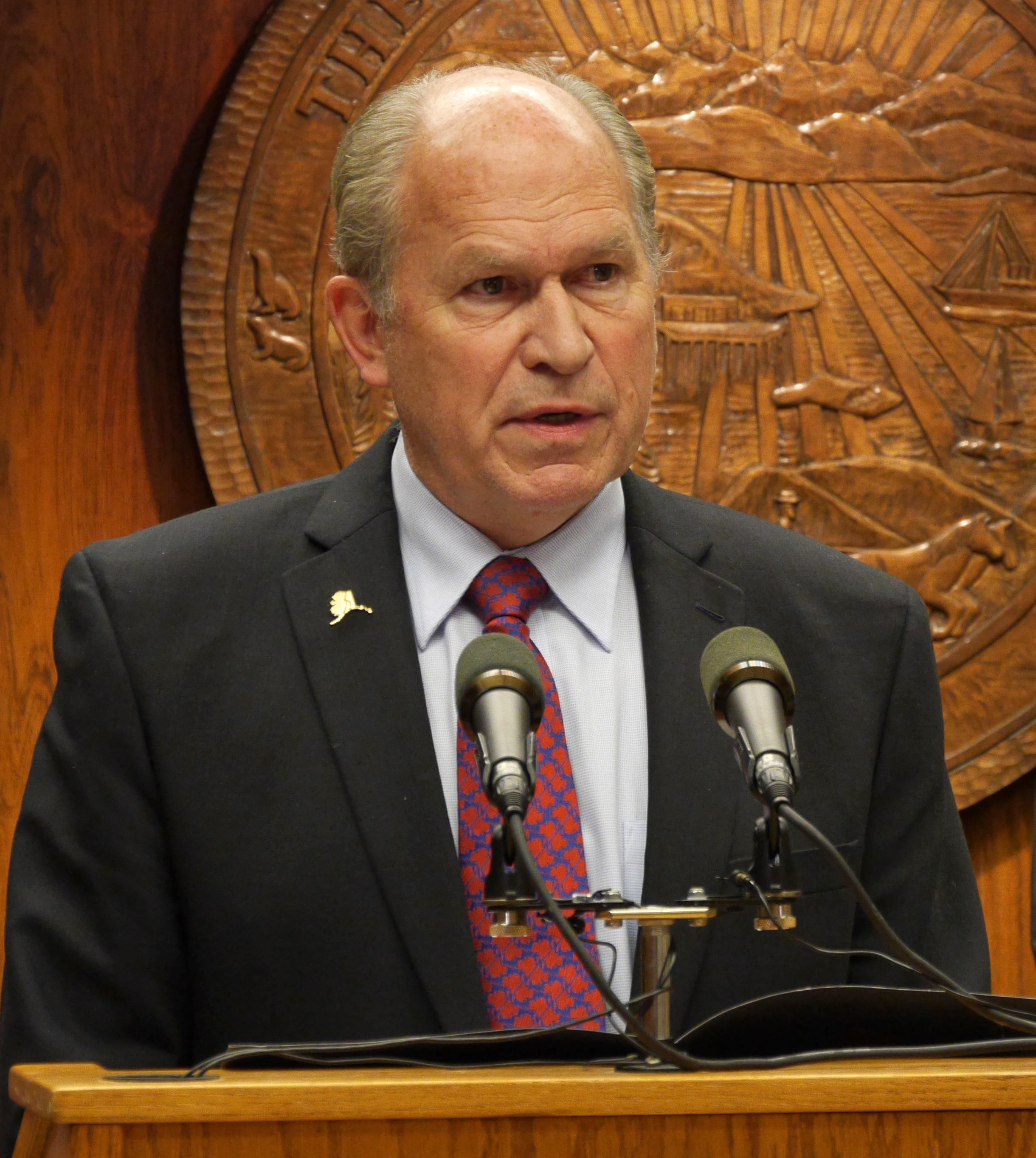Alaska’s government has never in 40 years used permanent fund earnings to balance the state budget. That could change this year. How the Legislature and Governor Bill Walker handle a plan could have big implications on Alaskans’ Permanent Fund dividends.

Wednesday is the last day of the legislative session. And lawmakers head into it without knowing how they’re going to fill a roughly $3.5 billion deficit.
Majority legislative leaders would prefer to close this shortfall by spending money from the Constitutional Budget Reserve. This nearly $8 billion reserve has been used to close deficits in previous years.
But three quarters of both legislative chambers must approve a Constitutional Budget Reserve draw. The Senate majority could pass it. But members of the Democratic-led House minority caucus are in position to block this draw. They want to make deep cuts in tax credits to oil and gas producers.
So legislators, like Senate President Kevin Meyer, are considering drawing money from the Permanent Fund earnings reserve account.
“Well, the CBR draw is our preference, of course,” Meyer said. “And we will have the three-quarter vote to do that and that will be our recommendation. If that doesn’t happen, then our only option is to then use the earning reserve account in some capacity. So, that will pretty much be up to the House.”
Meyer said the Legislature could pass the budget tomorrow, and then return for a special session that would focus in part on making long-term changes to a fiscal plan for using Permanent Fund earnings, similar to what Governor Walker has called for.
Different proposals to restructure fund earnings could lead to cuts to Permanent Fund dividends, possibly cutting them in half.
The Permanent Fund is made up of two pieces. The main body of the fund is $43 billion. It’s protected by the state constitution. That’s what makes it permanent.
The other piece is the earnings reserve account. It’s about seven and a half billion dollars. Normally, these earnings are just used for dividends, and to replenish the main fund.
But it’s also easier for the Legislature to spend than the Constitutional Budget Reserve. It only takes a majority of both legislative body to spend this money.
This could happen tomorrow.
The prospect is drawing the attention of longtime observers of Alaska’s budget process.
Oregon-based economist Gregg Erickson is the former publisher of the Alaska Budget Report.
“We know that if you take money from the earnings reserve, it’s going to reduce the dividend, Erickson said. “And that, in a sense, puts the burden of this financing on the people of Alaska who are least able to pay for it.”
Erickson added that it would be foolish for Walker to agree to a deep draw from the earnings reserve if he’s not certain what the Legislature would do in a special session.
“Anybody who wants to trust the Legislature and give up all their cards, basically, in the expectation that they’ll do something later – particularly when it’s so vague – is just not realistic,” Erickson said.
It’s point reinforced by political scientist Clive Thomas. His book Alaska Politics and Public Policy is being published next month.
Thomas said legislators may be hoping that oil prices will increase. He added that Governor Walker’s budget plan included both a reduction in Permanent Fund dividends – which affects lower-income and rural Alaskans the most – and an income tax – which would affect upper-income residents more heavily. The Legislature hasn’t passed the income tax. Thomas said lawmakers would like to put off politically difficult choices in an election year.
“The state is a bad situation, and you’ve got to do something about it,” Thomas said. “And it’s going to mean in some way a reduction in Alaska’s lifestyle, and quality of life. I think that’s just inevitable. But no politician will say that to anybody.”
Institute of Social and Economic Research Director Gunnar Knapp says however the Legislature and governor spend from the state’s savings, it will have significant implications for the future.
“There’s all the difference in the world between doing that in a thoughtful, structured way, and simply saying ‘Here’s a pot of money we can go to to make up for the spending we’re not willing to cut and we’re not willing to tax ourselves to pay for,” Knapp said.
The Legislature is preparing to pass both the capital and operating budgets on Wednesday. Walker has said he can’t accept a budget with a Permanent Fund draw, without having a sustainable fiscal plan. A spokeswoman for Walker says he’ll decide after the session ends if there’s a need for a special session.
Andrew Kitchenman is the state government and politics reporter for Alaska Public Media and KTOO in Juneau. Reach him at akitchenman@alaskapublic.org.




